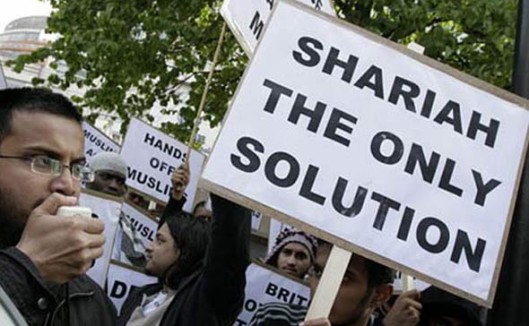Shari’ah’s Uphill Climb
by John Witte Jr.
A constitutional battle over Muslim family law has begun. In November 2010, Oklahoma voters approved a state constitutional amendment banning the use of Muslim Shari’ah and other international laws in its state courts. This was a direct rejoinder to other Western nations allowing Muslim citizens to enforce Muslim marriage contracts in state courts and to resolve family law issues before Shari’ah tribunals without state interference. Oklahoma’s citizens wanted none of it, and they voted to ban the use of Shari’ah altogether. Twelve other states are discussing comparable measures.
 In January 2012, however, a federal appeals court upheld a lower federal court injunction of Oklahoma’s amendment. Singling out a specific religious law for special prohibition, the court of appeals concluded, violated the First Amendment Establishment Clause and unjustifiably injured Oklahoma’s Muslim citizens. This leaves Oklahoma courts with a stark choice: allow Muslims to use Shari’ah to govern internal religious affairs and the private lives of voluntary members, or equally prohibit all religious groups from exercising comparable authority through organs of internal mediation, ecclesiastical discipline, and canon law.
In January 2012, however, a federal appeals court upheld a lower federal court injunction of Oklahoma’s amendment. Singling out a specific religious law for special prohibition, the court of appeals concluded, violated the First Amendment Establishment Clause and unjustifiably injured Oklahoma’s Muslim citizens. This leaves Oklahoma courts with a stark choice: allow Muslims to use Shari’ah to govern internal religious affairs and the private lives of voluntary members, or equally prohibit all religious groups from exercising comparable authority through organs of internal mediation, ecclesiastical discipline, and canon law.
Oklahoma can likely escape this choice by crafting a more neutrally-phrased constitutional amendment. But deft legal drafting will not end the matter. As American Muslims grow stronger and anti-Muslim sentiment in America goes deeper, constitutional and cultural battles over Muslim laws and tribunals will likely escalate.
Many Shari’ah advocates reject America’s sexual revolution of the past half century, built on cultural and constitutional ideals of sexual privacy, equality, and autonomy. They reject the easy-in/easy-out system of American family law that has brought ruin to so many women and children. They reject America’s legal protections for nonmarital sex, sodomy, abortion, and same-sex marriage. Distrusting the modern liberal state’s capacity to reform its laws of sexuality, marriage, and family life, Shari’ah advocates want out.
They have two main objectives: to give Muslims the right to opt out of the state’s liberal family law into their own religious community’s morally rigorous system; and to give Muslim religious officials the right to operate that system for voluntary members without undue state interference or review.
Is Shari’ah “religion” or “politics” …
or BOTH?
What about the US CONSTITUTION?


Pingback: Blogsense-By-Barb | Grumpy Opinions
Reblogged this on WindsorCOAct!forAmerica.
Reblogged this on News You May Have Missed and commented:
A Constitutional Battle: Shari’ah’s Uphill Climb
A friend had sent me an email awhile ago, in which praised Japan because Japan banned anything to do with Shassriahs laws, customs, religions. Furthermore they took the position of NO MUSLIMS………jperiod, regardless of sect. Wish I had saved that email, maybe it can be found online. All that I remember is having a
new admiration for Japan, I had not had before
Yea … that would be cool, but it would never fly here in the US. Must have “religious” freedom. What people fail to understand is the Islam is NOT a religion as much as it is a totalitarian government system which includes a “religious” element. With a President that is Muslim, this will not change, either!